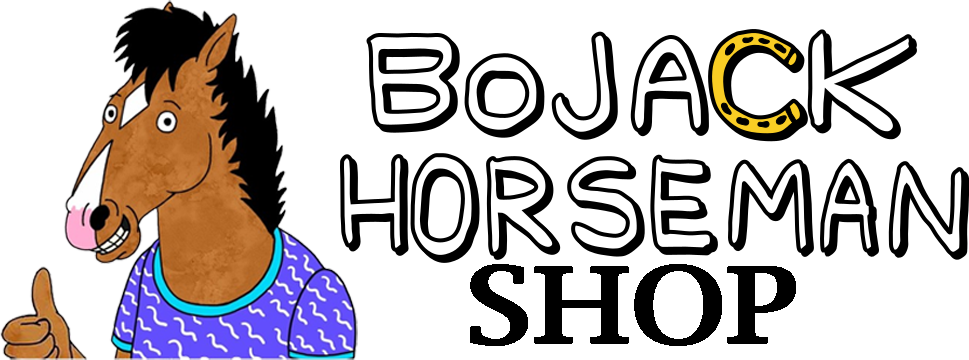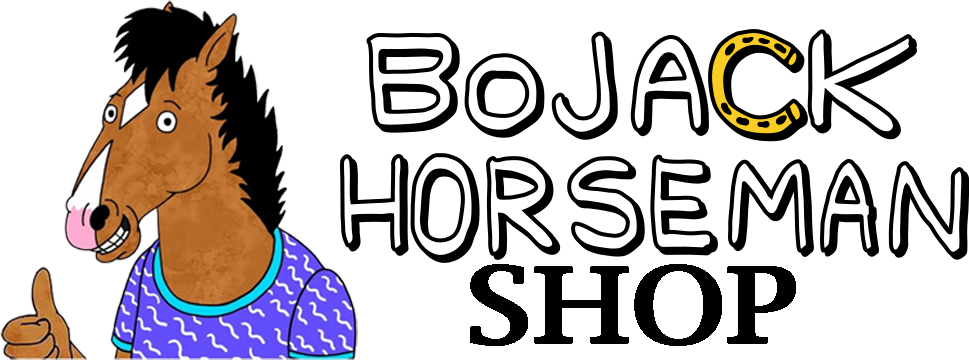The Top 5 Most Overlooked ‘BoJack Horseman’ Episodes, Ranked
“BoJack Horseman” is renowned for its deep exploration of mental health, addiction, and the human (or animal) condition. Despite its popularity, some episodes haven’t received the attention they deserve. Here are the top 5 most overlooked “BoJack Horseman” episodes, ranked.
5. “The Amelia Earhart Story” (Season 6, Episode 8)
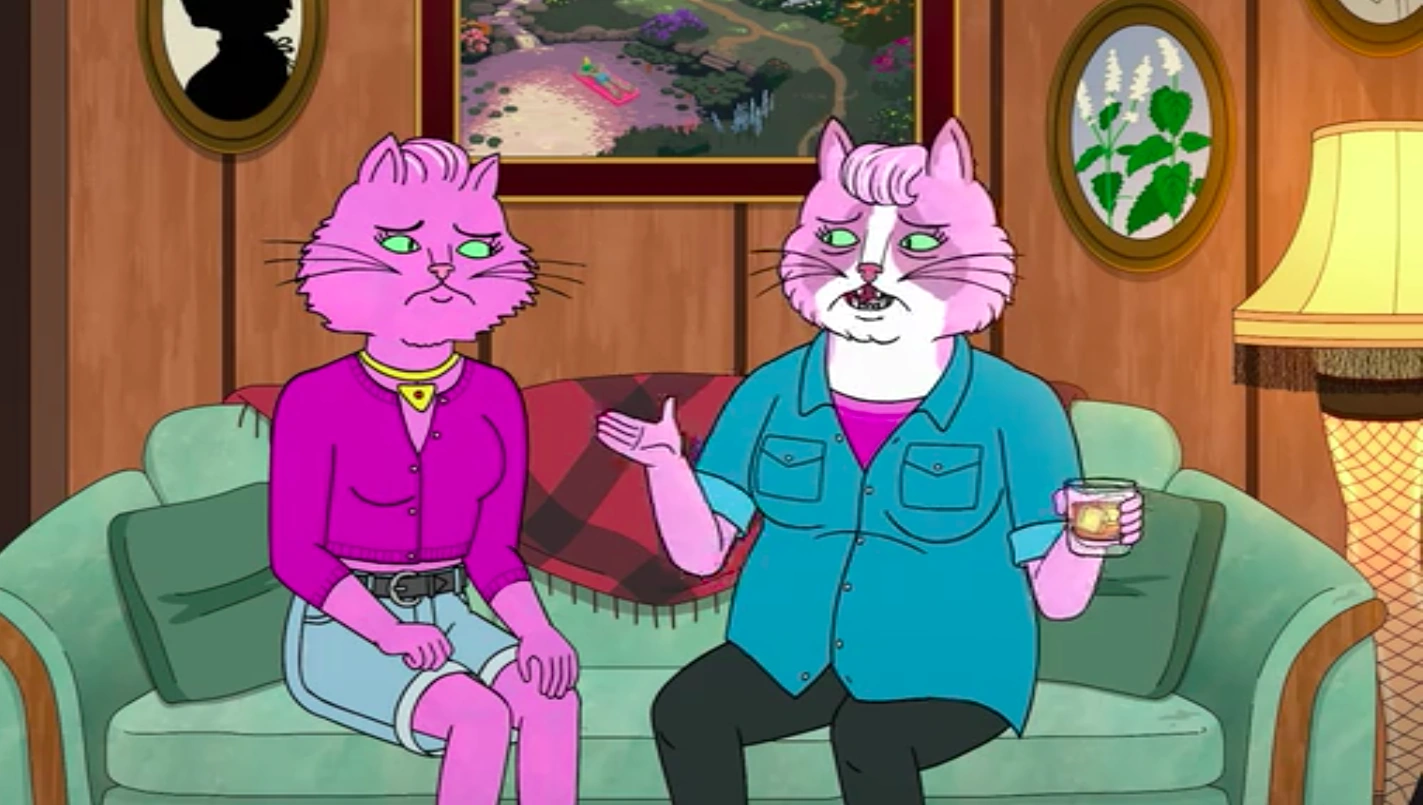
While Season 5 is known for its intense moments, “The Stopped Show” often gets lost in the shuffle. This episode addresses the consequences of BoJack’s actions, particularly in the context of the #MeToo movement. The narrative is centered around the fallout from BoJack’s behavior, both on and off the set of his TV show “Philbert.” When Gina, his co-star, accuses him of assault, the incident forces everyone, including BoJack, to confront the reality of his destructive behavior.
“The Stopped Show” serves as a crucial commentary on accountability and redemption, exploring how public figures navigate the complexities of dealing with past mistakes. The episode doesn’t shy away from showing the pain and confusion that come with being both a victim and a perpetrator. It examines the broader societal implications of the #MeToo movement, questioning the extent to which people can change and whether they deserve forgiveness.
4. “The Stopped Show” (Season 5, Episode 11)
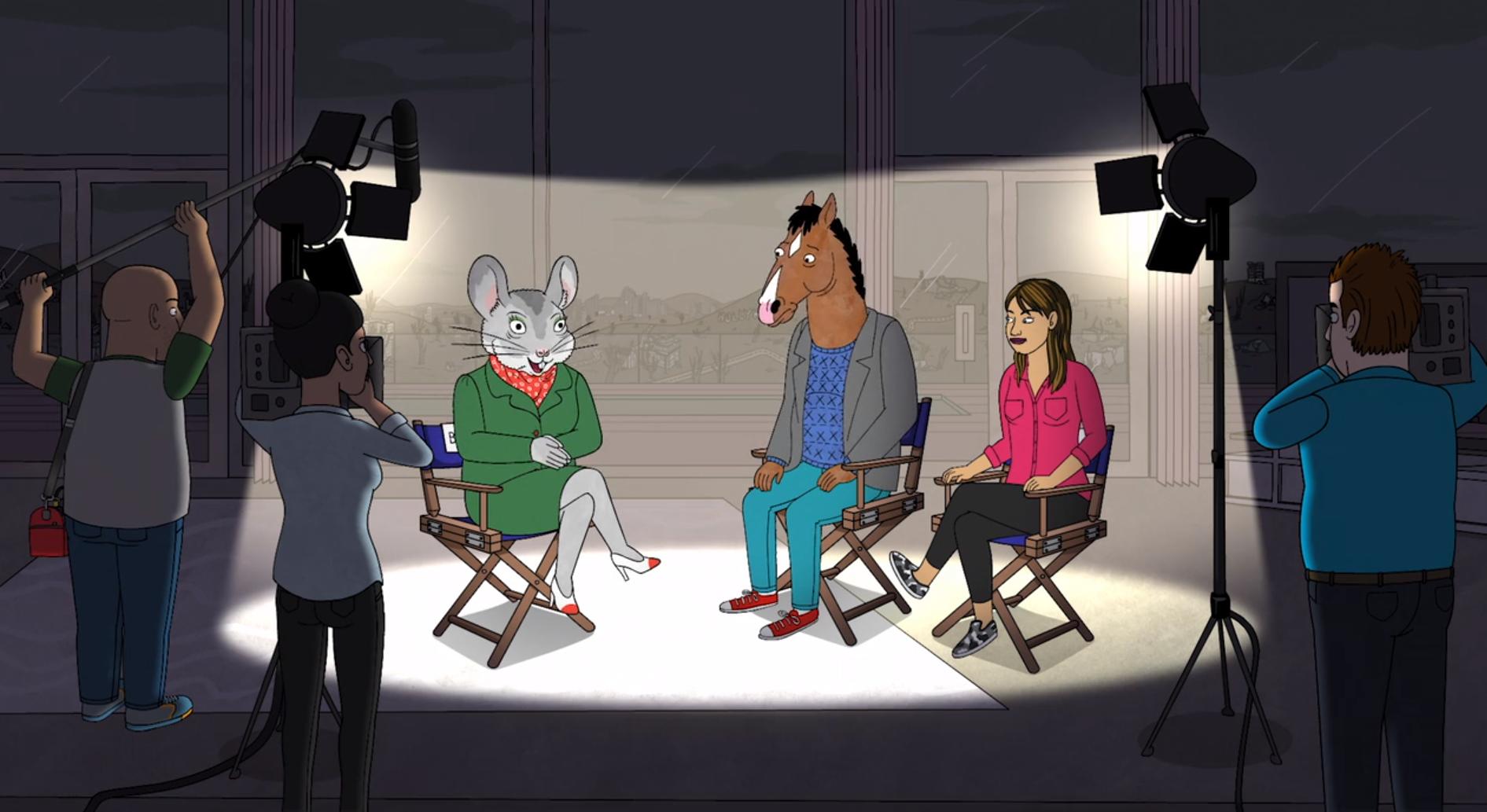
While Season 5 is known for its intense moments, “The Stopped Show” often gets lost in the shuffle. This episode addresses the consequences of BoJack’s actions, particularly in the context of the #MeToo movement. The narrative focuses on the aftermath of BoJack’s violent behavior toward his co-star, Gina, during the filming of their show “Philbert.” Gina’s decision to remain silent about the assault highlights the pervasive fear and power dynamics in Hollywood, and BoJack’s struggle with his guilt and the public’s reaction underscores the complexities of accountability and redemption.
“The Stopped Show” is a crucial commentary on the challenges of dealing with past mistakes in the public eye. It delves into the discomfort and resistance that often accompany the call for accountability, as well as the public’s role in either enabling or condemning the actions of celebrities. The episode also explores the psychological turmoil faced by both the victims and the perpetrators of such actions, emphasizing the nuanced and often painful journey toward redemption.
3. “Brrap Brrap Pew Pew” (Season 3, Episode 6)
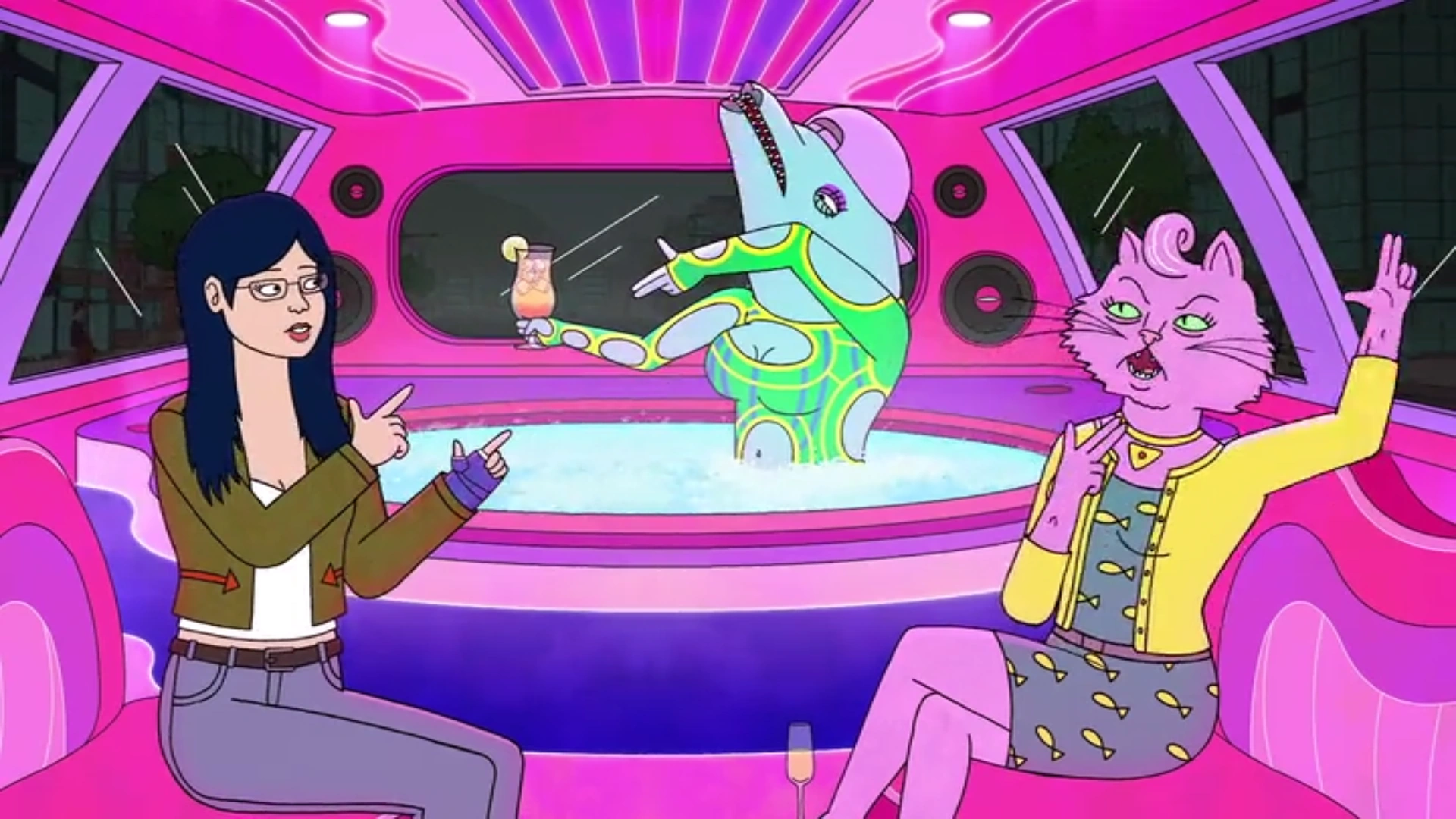
A satirical take on abortion, this episode handles a sensitive topic with humor and grace. Diane’s storyline is both funny and heart-wrenching, presenting a balanced view on a divisive issue. When Diane decides to have an abortion, the show approaches the subject with a mix of irreverence and sincerity that only “BoJack Horseman” can achieve. The episode doesn’t shy away from the emotional and ethical complexities of the decision, portraying Diane’s experience in a way that is both respectful and candid.
The humor in “Brrap Brrap Pew Pew” is sharp and biting, using satire to comment on the societal and political aspects of abortion. From the absurdity of the media frenzy to the public reactions, the episode critiques the sensationalism and hypocrisy often surrounding the topic. At the same time, it highlights the personal and private nature of Diane’s decision, showing her contemplation and the support she receives from her friends.
2. “Yesterdayland” (Season 2, Episode 2)
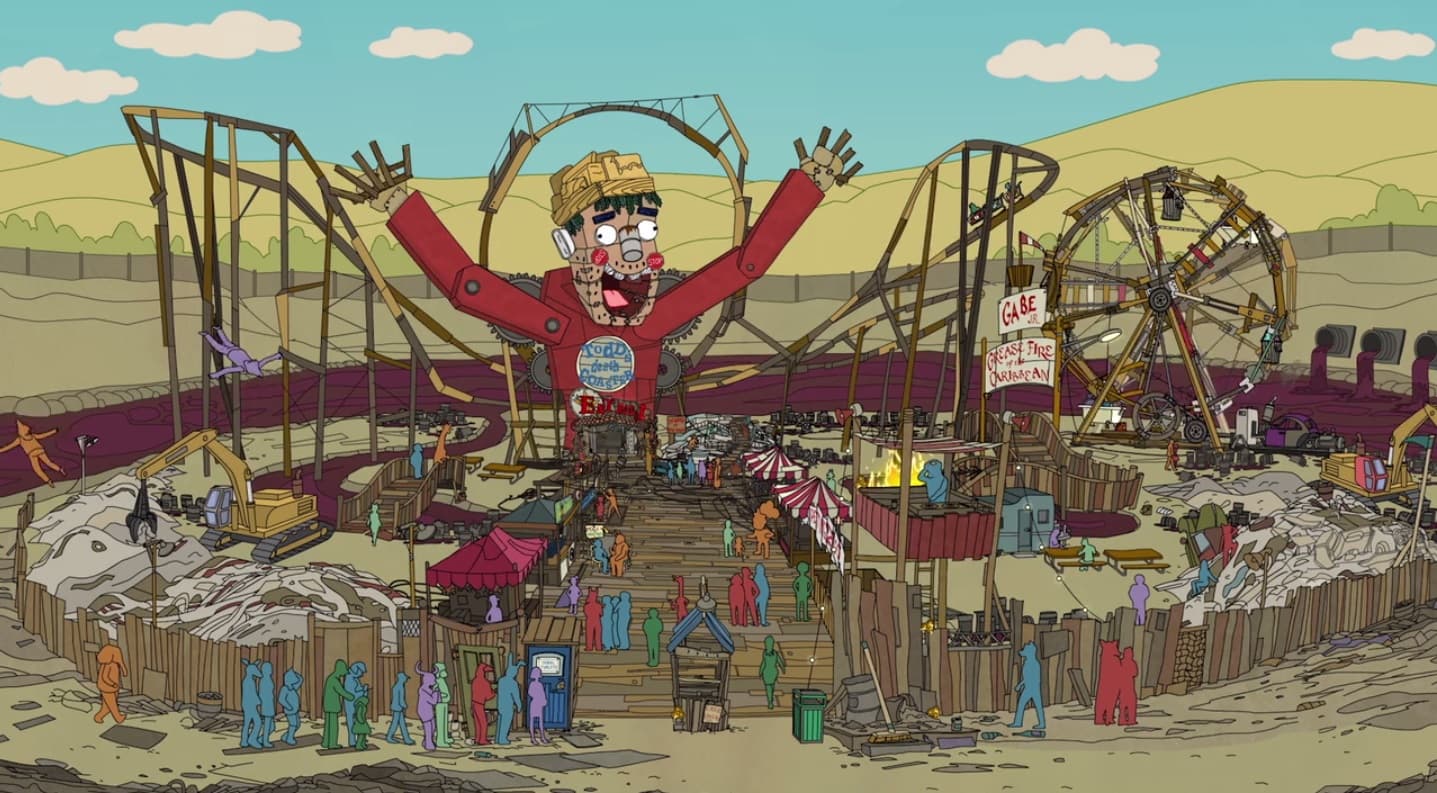
“Yesterdayland” explores BoJack’s relationship with his past, particularly his desire to recreate a version of himself that he can be proud of. In this episode, BoJack buys out an entire theme park and renames it “BoJack’s Princess Carolyn Park” in an attempt to impress his new girlfriend, Wanda. This endeavor symbolizes his yearning to control and reshape his narrative, crafting a version of his life that aligns with his ideal self-image.
The episode’s exploration of nostalgia and the dangers of living in the past is both insightful and relatable. BoJack’s actions reflect a common human tendency to romanticize the past, often as a way to escape the dissatisfaction of the present. By investing in the theme park, BoJack attempts to reclaim his lost happiness and sense of purpose, but the effort is ultimately futile. The park, much like his memories, is a facade that crumbles under the weight of reality.
1. “Let’s Find Out” (Season 2, Episode 8)
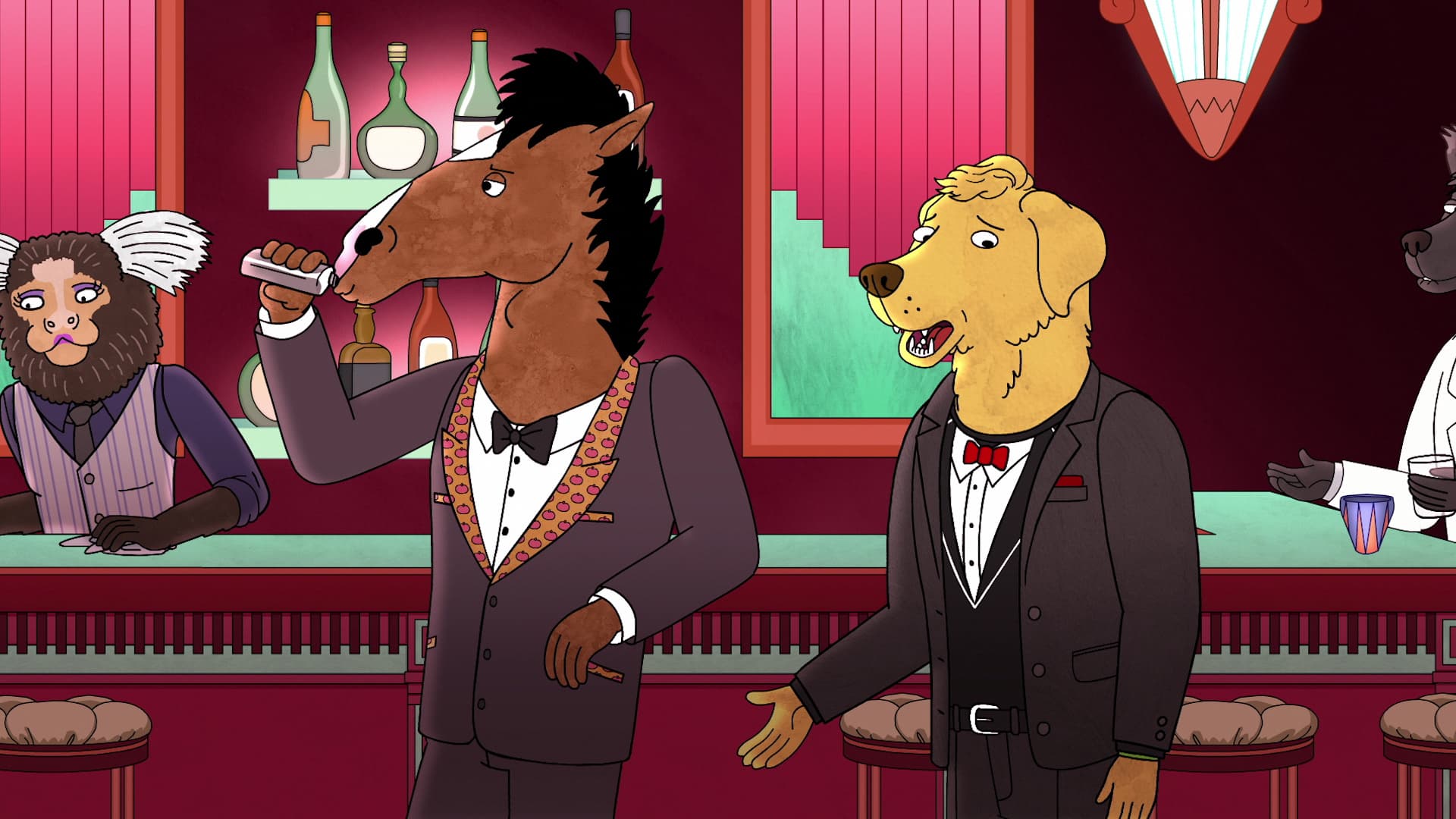
This episode features BoJack as a contestant on Mr. Peanutbutter’s game show, “Hollywoo Stars and Celebrities: What Do They Know? Do They Know Things?? Let’s Find Out!” The premise sets the stage for a hilarious and biting critique of celebrity culture and the often hollow pursuit of validation through fame. BoJack’s participation in the game show highlights his deep-seated need for approval and recognition, even as he grapples with his insecurities and self-doubt.
The episode cleverly critiques the nature of celebrity culture, exposing the absurdity and superficiality that often accompany it. Mr. Peanutbutter’s game show, with its convoluted and nonsensical title, mirrors the chaotic and often meaningless nature of fame itself. BoJack’s desperate attempts to prove his worth in front of a live audience reflect the emptiness of seeking validation from others, especially in a world that values appearances over substance.
“BoJack Horseman” has many layers, and these episodes highlight the show’s ability to tackle complex issues with humor and heart. While they may not be as celebrated as others, they are essential to understanding the full spectrum of the show’s brilliance. Next time you rewatch “BoJack Horseman,” give these episodes the attention they deserve.
Read more:
